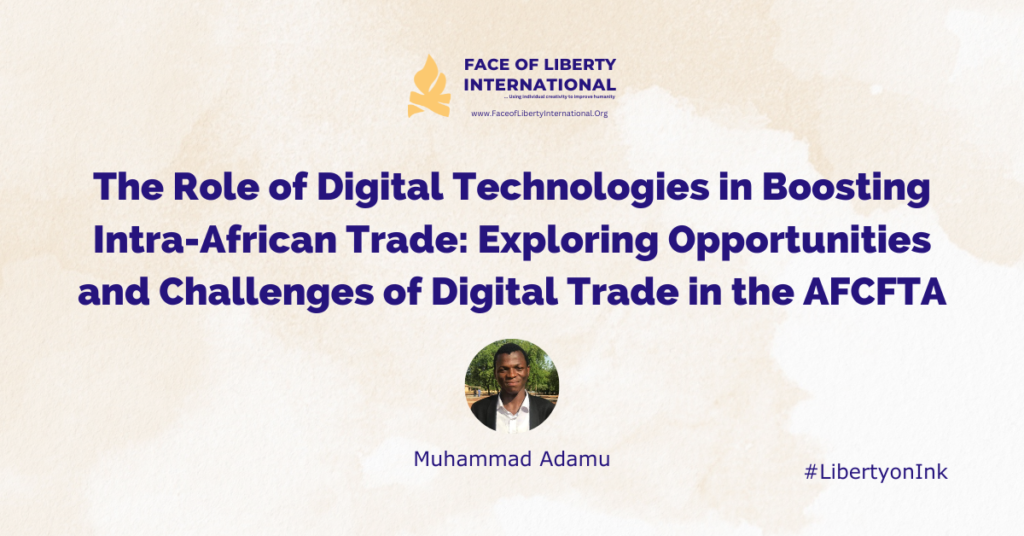By Muhammad Adamu
Africa has a growing population of over 1.2 billion people and a staggering half of the continent’s population live below $2 a day. A problem the African Continental Free Trade Agreement (ACFTA) will help reduce.
Digital technologies are one of the fastest ways of transporting goods across countries and with the current advantage ACFTA offers, job creation in this sector alone is capable of employing millions from both the formal and the informal sectors.
Since Africa gained Independence, civil wars and international war between African countries have led to diseases and malnutrition. The African continent has used more of its resources in killing than building friendships with one another. The continent is reported to spend $ 18 billion annually on armed conflicts.
The 19th-century French Liberal economist Frederic Bastiat said, “When goods don’t cross borders, soldiers will”. This goes a long way to describe the current African situation. This crisis and fear of insecurities have led to the backlash of the ACFTA. In less than a year after the agreement was signed, Nigeria closed its borders to neighbouring Benin, Cameroon, Chad, and Niger; for the fear of having no control over goods that comes into the country. Sudan; closed its borders for security reasons. Uganda and Rwanda; closed borders because of diplomatic issues that had raised fears of hostilities. Currently, Somalia and Ethiopia are killing themselves over land disputes. A country that does not allow goods to come in will surely allow bullets to kill its people.
The AFCFTA could be what Africans have been earning. Before the 21 of March 2018 when the AFCFTA was signed. The African regional trade was roughly 16% while cross-continental trade was over 50% of what it trades. This agreement is expected to increase regional trading and surpass other trading ratios outside of Africa.
Although the import of the 50% trade with other regions outside of Africa is due to the low manufacturing and processing powers with the rising technology and the AFCFTA agreement in place things are likely to get better for Africans faster than anticipated. For instance, the Dangote refinery if finished will save Nigeria a hooping $12 billion and this could benefit other neighbouring African countries.
African Countries Must Create Opportunities Better Than Crisis Opportunities
It is true, some people benefit from wars and that is why they keep recruiting the youth to make sure the crises do not end. But Africa needs to create better opportunities than the crisis for Africans to survive. If an insurgent repents today is he going to see better opportunities or is he going back to the default idleness he was before? Opportunities must be made available through the Intra-African Trade. Cross-country trains, airports, seaports, and loads of employment opportunities attract people better than insurgents.
Expansion Of Technologies To Other Parts of Africa
Africa is moving fast and catching up with the rest of the world but a double effort needs to be put in place to make this a reality. Ghana’s creation of the Export Trade House (ETH) in Kenya as part of the measures to promote trade relations between the two countries is a great move and more of this needs to be seen. Kenya exports batteries, Nigeria exports wires and cables, South Africa MultiChoice DSTV is the choice of the majority, and Africa is rich in agriculture and mineral resources. Africa just has to take advantage of the AFCFTA and make Africa a continent for all.
Muhammad Adamu is libertarian with a keen interest in free market, he is currently a writing fellow with The Liberalist Centre For Education and can be contacted via muhammadadamu1998@gmail.com



